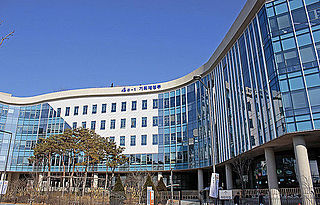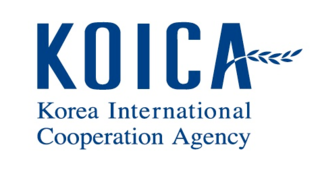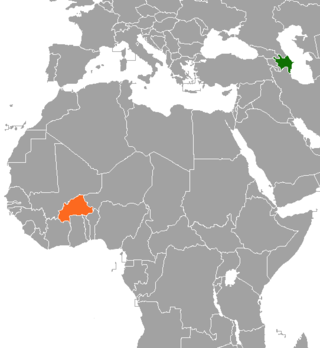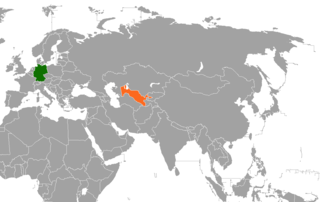The economy of Uzbekistan was formerly associated with a Soviet-style command economy, with a slow transformation to a market economy. However, in recent years and since the election of President Shavkat Mirziyoyev the country has seen rapid economic and social reform, aimed at boosting growth and transforming Uzbekistan into a true, modern market economy. International Financial Institutions, including EBRD, Asian Development Bank and the World Bank are actively engaging in supporting Uzbekistan's successful reform process and have rapidly increased their presence in the country.

Uzbekistan joined the Commonwealth of Independent States in December 1991. However, it is opposed to reintegration and withdrew from the CIS collective security arrangement in 1999. Since that time, Uzbekistan has participated in the CIS peacekeeping force in Tajikistan and in United Nations-organized groups to help solve the Tajik and Afghan conflicts, both of which it sees as posing threats to its own stability. Uzbekistan is an active supporter of U.S. efforts against worldwide terrorism and joined the coalitions which have dealt with both Afghanistan and Iraq. It is a member of the United Nations, the Euro-Atlantic Partnership Council, Partnership for Peace, and the Organization for Security and Cooperation in Europe (OSCE). It belongs to the Organisation of Islamic Cooperation (OIC) and the Economic Cooperation Organization, which comprises 7 Central Asian countries: Pakistan, Uzbekistan, Kazakhstan, Turkmenistan, Afghanistan, Kyrgyzstan and Tajikistan. It is a founding member of and remains involved in the Central Asian Union, formed with Kazakhstan and Kyrgyzstan, joined in March 1998 by Tajikistan.

A ministry of finance is a ministry or other government agency in charge of government finance, fiscal policy, and financial regulation. It is headed by a finance minister, an executive or cabinet position.

The Economic Cooperation Organization or ECO is an Asian political and economic intergovernmental organization that was founded in 1985 in Tehran by the leaders of Iran, Pakistan, and Turkey. It provides a platform to discuss ways to improve development and promote trade and investment opportunities. The ECO is an ad hoc organisation under the United Nations Charter. The objective is to establish a single market for goods and services, much like the European Union. After the dissolution of the Soviet Union, the ECO expanded to include Afghanistan, Azerbaijan, Kazakhstan, Kyrgyzstan, Tajikistan, Turkmenistan, and Uzbekistan in 1992.

The Ministry of Economy and Finance oversees the financial policies of the South Korean government. It publishes a monthly report on the national economy, known as the "Green Book." The current minister is Choo Kyung-ho. The headquarters is in the Sejong Government Complex in Sejong City.
A ministry of economy, ministry of commerce, ministry of economic affairs or department of commerce is a part of the government in most countries that is responsible for matters related to the economy or economic policy.

The Korea International Cooperation Agency was established in 1991 by the Ministry of Foreign Affairs of South Korea as a governmental organization for Official Development Assistance (ODA). KOICA's goal is to enhance the effectiveness of South Korea's grant aid programs for developing countries by implementing the government's grant aid and technical cooperation programs. KOICA is led by three-year-term president of the board who is appointed by the President upon the recommendation of Foreign Minister.

The Ministry of Agriculture of Azerbaijan is an Azerbaijani governmental agency within the Cabinet of Azerbaijan in charge of regulation of the economic activity in the agricultural sector of the country with a purpose of increasing the sector's production capacity. Agriculture is Azerbaijan's second most important natural resource playing a significant role in the country's economy. The ministry is headed by Inam Karimov.

The Ministry of Ecology and Natural Resources of Azerbaijan Republic is a governmental agency within the Cabinet of Azerbaijan in charge of regulation of the activities in the country relating to ecology, environmental protection and use of natural resources of Azerbaijan.

The Ministry of Economy of Azerbaijan Republic is the central executive body responsible for implementing state policy and regulation in the following areas: formulating economic policy of Azerbaijan, producing macroeconomic projections, creating a favorable environment for economic development and growth, encouraging investment activity, developing entrepreneurship and industry, regulating the licensing and permit system, protecting, developing and encouraging competition, protecting the rights of consumers, implementing state procurement policy, ensuring full and timely introduction of taxes and other mandatory payments relating to the authority of the Ministry, in the state budget, management of government assets, privatization, establishing state land management system, conducting state registration and single state cadastre of immovable property.
Expenditure for scientific research and Development in Albania does not exceed 0.18% of GDP, which marks the lowest level in Europe. Economic competitiveness and exports are low, with the economy still heavily skewed towards low technology.

The State Statistics Committee of Azerbaijan Republic is a governmental agency within the Cabinet of Azerbaijan in charge of collection, processing and disseminating statistical data on the economy, demographics and other sectors of activity in Azerbaijan Republic. The agency is headed by Arif Valiyev.

Mikayil Chingiz oghlu Jabbarov is the current Minister of Economу of the Republic of Azerbaijan, Minister of Taxes of the Republic of Azerbaijan (2017–2019), Minister of Education of the Republic of Azerbaijan (2013–2017), Director of the Administration of Icherisheher State Historical-Architectural Reserve under the Cabinet of Ministers of the Republic of Azerbaijan (2009–2013), Deputy Minister of Economic Development of the Republic of Azerbaijan (2004–2009). President of the Azerbaijan Badminton Federation (2015–2021), President of the Azerbaijan Fencing Federation (2017–2021), President of Azerbaijan Wrestling Federation.
The Ministry of Justice of the Republic of Uzbekistan,, is the central government body charged consistent implementation of a single state policy in the sphere of lawmaking and law enforcement practice in Uzbekistan.

The Ministry of Energy Infrastructures and Natural Resources of Armenia is the ministry responsible for the management of the energy systems, and control of the exploitation of natural resources in Armenia. It elaborates and implements the policies of the Government of Armenia in the energy sector.
Science and technology in Kazakhstan – government policies to develop science, technology and innovation in Kazakhstan.
Science and technology in Uzbekistan examines government efforts to develop a national innovation system and the impact of these policies.

Bilateral relations exist between the Republic of Azerbaijan and the Republic of Burkina Faso in the diplomatic, cultural, socio-economic and other spheres. Neither country has a resident ambassador. Burkina Faso has a non resident embassy in Ankara.

South Korea-Uzbekistan relations are the international relations between South Korea and Uzbekistan.

Germany–Uzbekistan relations are the diplomatic relations between the Federal Republic of Germany and the Republic of Uzbekistan. Bilateral relations began when the Federal Republic of Germany recognized the independence of the Republic of Uzbekistan on December 31, 1991.











